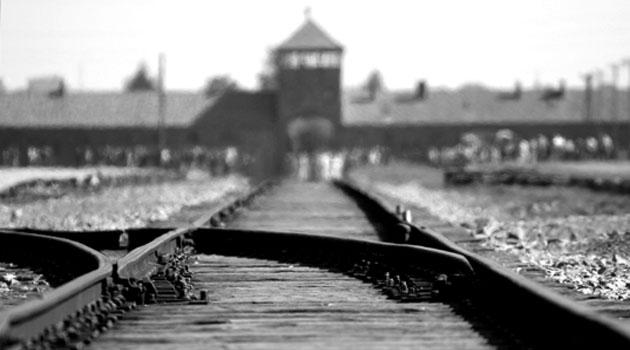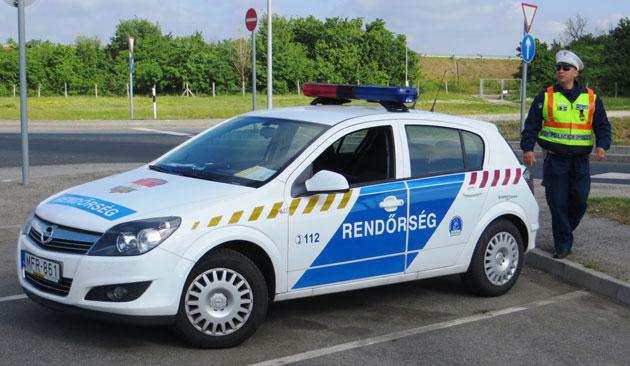Germany compensating Czech and Slovak Roma 72 years after Nazi atrocities

“From an inconspicuous article in the newspaper I learned that Germany had begun to compensate Jewish [Holocaust survivors] in the post-communist states. I could not find any mention of Romani people anywhere. That country left such a horrible mark on us Roma and continues to behave as if nothing ever happened to us. That angered me terribly,” recalls the chair of the Committee for the Redress of the Roma Holocaust in the Czech Republic (VPORH), Čeněk Růžička, when asked how last year’s breakthrough decision came about to compensate Czech Roma for the hardships caused them by their imprisonment in German concentration camps.
Růžička immediately contacted the German Embassy, twice, but did not achieve success until he contacted the Czech Foreign Affairs Ministry. “I described the entire situation. I referred to the statement by former German President Joachim Gauck, who said the Jewish Holocaust and the Romani Holocaust are of an equivalent nature. Czech Foreign Minister Zaorálek took my arguments seriously,” the VPORH chair said.
Why the Romani victims were initially ignored by this most recent compensation mechanism is something Růžička explains to himself by speculating that Germany feared there would be too many applicants – but nothing of the sort has transpired. Once the Czech Republic agreed on the compensation with the German Ministry of Finace, a one- time sum of EUR 2 556 was paid to 27 Romani applicants, five of whom are still waiting for their applications to be processed, while others may yet turn up – the estimates, however, are that a maximum of 10 persons more would be eligible.
Today there are only three direct eyewitnesses of Romani origin who survived the concentration camps and are still alive. Most of the current applicants for compensation are those who managed to go into hiding to avoid imprisonment and who either have certification of that fact as per Act No. 255/1946 Coll., or who have received compensation from the Czech Social Security Administration per Act No. 261/2001, Coll.
Act No. 255: For reasons of racial persecution
According to historian Ctibor Nečas, after the war just 583 Czech Roma returned from the German concentration camps. Among them were Růžička’s parents.
To this day he can still recall their testimonies about the camps. “Until 1940, Romani people could live a travelling lifestyle despite the fact that German troops had been on our territory beginning the year before. Then the decree was announced that Romani people had to register in municipalities for the right of domicile. However, the local authorities frequently did not want to give them that right, and the Romani people did not protest because they preferred to live itinerantly. The Germans, however, tightened the screws and ultimately settlement in municipalities happened,” Růžička told Romano vod’i magazine.
The family of his mother settled in the village of Loukov near Mnichův Hradiště. The trade in horses that the family had dedicated themselves to for generations and made a living through had to stop – besides occasional work for the local farmers, the women in the family did their best to ensure their livelihood by begging, and his mother returned from one such errand on 2 August 1942 – the day the authorities undertook the inventory of all “gypsies, gypsy half-breeds and persons living the gypsy way of life” – to find the place where she had been living with her family and husband was empty.
Her relatives had been forcibly imprisoned in the camp at Lety u Písku. Not long afterward she ended up there herself.
From the camps of Auschwitz, Ravensbrück and other locations of horror she was the only member of her entire family to return to Loukov. There she also met the man who would become Růžička’s father and who had also survived the camps as one of three brothers from a 33-member family.
Despite the fact that by the end of 1946, Act No. 255/1946 Coll. “on members of the Czechoslovak Army abroad and some other participants in the national liberation struggle” had already taken effect, thanks to which people could acquire certification from the Czechoslovak Defense Ministry that they had been victims of Nazism, such persons had no idea about options for compensation until 1971. “One acquaintance of our family, a Sinto, worked at a hospital as an ambulance driver. He invited us to a baptism, and told us that the head doctor at the hospital, who had also been in a concentration camp, was aiding him with getting an Act No. 255 certificate. We knew nothing about it, my parents could neither read nor write, and so I got involved in dealing with it for them,” Růžička recalls.
He and his mother first went to Prague to visit what was then called the Czech Union of Anti-Fascist Fighters. There they learned that there was no longer any money left in the compensation fund and returned home with the matter unresolved.
They later heard the same information from the local authority in Jičín. “It was kind of a gadjo song to sing when Romani people were involved. Already back then, however, it made me really angry, and I wrote a genuinely harsh letter to [Czechoslovak President and long-term Secretary-General of the Communist Party] Husák. Then it went as if by telegraph,” Růžička recalls.
The International Red Cross, thanks to the Nazis’ penchant for careful record-keeping, was able to confirm the numbers that his parents had tattooed on their arms without any problem. The Czech Defense Ministry then gave them certifications according to Act No. 255.
First German Government compensation since the end of the war
Once Růžička verified, through his parents’ cases, that the entire process functioned, he considered it his obligation to inform other Romani people about it and to aid whomever he could in dealing with applying for certification and later, compensation. One of the first compensation programs in the Czech Republic began in 1998, launched by the Swiss Funds, with a financial injection from Swiss banks.
That same year Růžička established the Committee for the Redress of the Roma Holocaust in the Czech Republic (Výbor pro odškodnění romského holocaustu v ČR). Two years later, a foundation established by German businesses, “Remembrance, Responsiblity and Future” (EVZ), which paid compensation to the prisoners of the “gypsy camps” at Hodonín u Kunštátu and Lety and to Romani people who went into hiding or lived in otherwise difficult conditions, which applied to all who lived in the occupied Czech lands from 1939-1945.
Applications for that foundation were dealt with by the Czech-German Fund for the Future, and the People in Need organization was also involved with the process. Applicants who did not manage to apply by the deadline but who were still eligible were then paid a one-time sum of CZK 60 000 [EUR 2 300] according to Act. No. 261/2001 Coll. by the Czech Social Security Administration.
A side project from those funds was also implemented by the Adra association together with the International Organizatoin for Migration. The compensation that began last year, therefore, is the first ever to involve financing from the German Government.
“Better late than never, a certain satisfaction has managed to be achieved for our Romani senior citizens who survived the occupation by Nazi Germany,” Michaela Lagronová, spokesperson for the Czech Foreign Affairs Ministry, told Romano vod’i magazine. She also stated that no further negotiations between the two countries are currently underway on this issue.
Awarding compensation for the Nazi-caused hardships suffered by Romani Holocaust victims did not go smoothly from the beginning in Germany itself, either. The German Government’s lack of will on the issue was not defeated until the current chair of the Central Council of German Sinti and Roma, the internationally recognized Romani activist Romani Rose, got involved.
“I do not exactly recall the year, it could have been 1960 or ’65, when Rose organized a 50-kilometer march, either to Berlin or to Munich. Many Romani people joined it and that broke the ice with respect to compensation in Germany,” said Růžička, who considers Rose to be Europe’s greatest Romani political leader ever.
Despite the fact that the Romani Holocaust is beginning to be discussed in public more than before, the VPORH chair believes it is not spoken of enough. “Jewish people are publishing information about what happened, nothing is hidden. We Roma must do the same. We must demonstrate that the ideology of racial superiority – by anybody against anybody else – is unacceptable,” he says.
You can order a print copy of Romano vod’i magazine (in Czech only) at www.romanovodi.cz.
